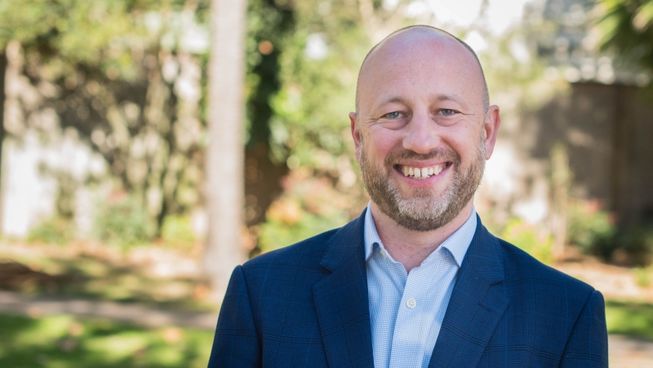How to ‘rely not on ourselves but God’ in the workplace

In 2 Corinthians the Apostle Paul describes the challenges that he is facing as having placed him “under great pressure, far beyond our ability to endure” (1:8). But rather than despairing in the face of these great hardships, he marks a startling comment regarding their purpose:
“This happened that we might not rely on ourselves but on God, who raises the dead” (1:9)
Each hardship, challenge, and “great pressure” can serve a positive function in the life of the Christian. It can serve as a reminder of our humanity, our limitations, our need for the help of others. In particular hardships happen to remind us not to rely on ourselves but on God.
However, reading this I found myself wondering, “Practically, what does it mean to rely not on ourselves but on God in everyday life?” It’s such an easy thing to say, but practically what does it mean to live in reliance upon God? In particular, what does it mean to live in reliance upon God in the workplace? Here are three suggestions:
1. Be "unmasked", admit you don’t know, and ask for help
Part of the way that we demonstrate our vertical dependence upon God is by expressing it horizontally, that is, by relying on those around us. A simple way of doing this is by admitting to our colleagues when we don’t know something, or need help with something. It can be hard to do this in a context where no one asks for help or admits weakness, but a posture of relying on God frees us to rely on others and ask for help. We can be "unmasked", revealing who we really are: that we don't know, or aren't able, and need help.
2. Allow others to take responsibility
Another way that we can express our vertical dependence horizontally is by allowing our colleagues to take responsibility for tasks that we would ordinarily do ourselves…even if they don’t do it the same way that we might! A great temptation for me is to try and do everything myself in the workplace so that it can be done how I like it to be done, only to end up overwhelmed by work. On the contrary, the one who recognises their limitations and the need for reliance upon others will be quick to allow others to help them with their work, or take responsibility for a certain part of a project, without then going on to micro-manage them.
3. Pray without ceasing
In some ways this is the chief practical way that we rely on God and not ourselves, but I left it till last because sometimes it is all that is said on the topic. But in considering it last may it also linger with us longer. Leaning into God in prayer in everything is how we rely on Him. Seeking His counsel before we undertake any venture, asking for His wisdom before we make any decision, calling out for His help before we face any challenge: these are the ways that we practically rely upon God and not ourselves, in the workplace, and in all of life. We pray to Him without ceasing (1 Thessalonians 5:17).
However what if you come to the end of this list and still feel unsure as to how this truth stretches into all the details of your daily work life. If you’re thinking that then you’re not alone – I feel that too. So what I’ve begun to do is to ask God to continue to show me what it means in each moment of each working day to rely on Him and not myself. And actually maybe that is the starting point in this whole attempt to rely on God and not ourselves, because it is itself an act which says, “I don’t know how to do this God. Would you help me to learn what it means to rely on you”. Which itself is an act of reliance.
Do you want more help trusting God at work?
More like this ...




